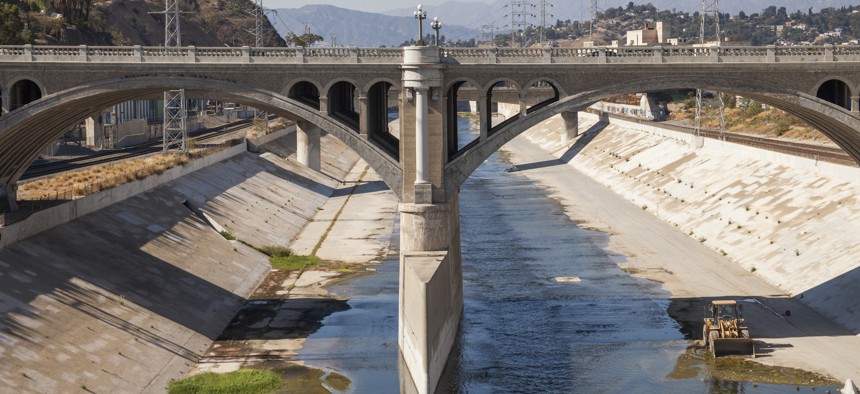Data, fines and threats to compel water conservation

GettyImages/ Studio 642
California's Las Virgenes Municipal Water District is giving its affluent residents access to their water consumption data to discourage overuse.
To address drought conditions, one California region is considering penalizing residents who exceed their "water budget," a figure based on the property size and the number of residents in a household.
The Las Virgenes Municipal Water District (LVMWD) will increase fines on residents who use too much water. It is also considering restricting the flow of water to households that have repeatedly disregarded conservation efforts. The flow restrictors will be reserved for homes that have been fined for overuse for three months or longer.
In September 2020, LVMWD began installing smart meters to improve efficiency in meter reading, billing and customer service. The systems can also help identify leaks or tampering and allow customers to monitor their own water use. The meters are set to be in place by April, except for the residents who choose to opt out of the program.
While the district hopes the real-time look at water consumption data will motivate residents to conserve, it has not stopped some of the area’s wealthier homeowners from exceeding their water budgets by regularly watering large lawns and filling swimming pools since the cost of water and the fines are not a deterrent.
“Our system helps us to target the message to the people who are really, frankly, the problem.” LVMWD general manager Dave Pederson told AP News.
With access to the VertexOne WaterSmart platform, locals can register for alerts letting them know about irregular water use so they can avoid unexpected costs and resulting fines. The notifications can be delivered via email, text message or phone call, and an advanced leak alert algorithm can help homeowners quickly identify the source of a leak, optimizing savings and minimizing water waste. The platform's dashboard offers a macro view of each household’s consumption, enabling more accurate bill forecasting. Using customer segmentation, the dashboard can also give consumers water-saving tips that cater to their meter-class profile.
The increased data transparency that comes with smart meters has helped cities with outdated systems account for revenue lost to underpriced water bills and faulty city infrastructure like leaky fire hydrants, broken pipes and old, inaccurate meters.
“What we’re trying to do is conserve water now so that we can stretch the limited supplies we have available,” Pederson said.





